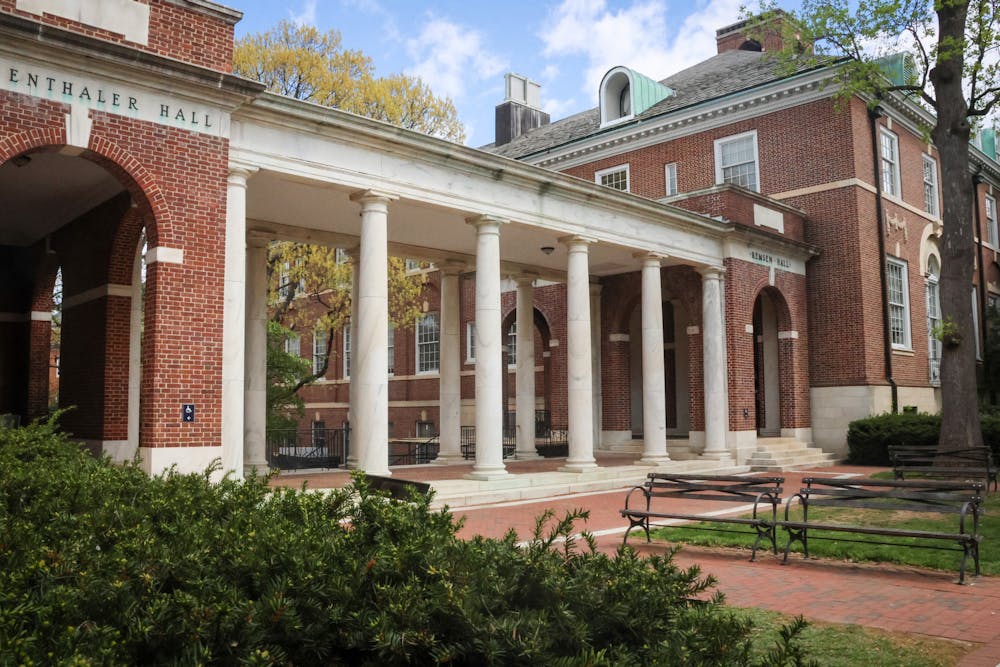On Friday, June 6, Hopkins filed a friend-of-the-court brief supporting Harvard University in its ongoing legal fight with the Trump administration. Through the brief, Hopkins and 23 other U.S. universities have publicly promoted Harvard’s case. Previously, the Hopkins administration issued multiple statements pledging compliance with the new policies.
In 2023, $3.8 billion, or nearly half of the University’s operating revenue, was allocated by federal agencies. Since January of this year, funding cuts — in particular, the dissolution of USAID and the elimination of general STEM funding — have had a major impact on research opportunities at Hopkins. The operating capacity of programs ranging from the JHU Research Saves Lives Project to Jhpiego have been severely hurt by these changes, leading to questions about the vitality of research on campus. Hopkins, as the first research university in the U.S. — in which two thirds of the undergraduate population engage in research — has proven particularly susceptible to damage by reductions of funding typically allocated through federal grants. In a statement issued in March, President Ronald J. Daniels addressed these funding cuts.
“We have little choice but to reduce some of our work in response to the slowing and stopping of grants and to adjust to an evolving legal landscape,” he said.
Harvard University, facing a similar fate, has been one of the most outspoken critics of recent federal demands. This has led Harvard to pursue two lawsuits against the Trump administration: one protesting funding cuts, and the other challenging the legality of deporting international graduate students. Their noncompliance has led to repeated threats by the executive branch regarding the university’s tax-exempt status and the further revocation of grant money.
These points of concern, which are shared by Hopkins following major losses in research funding and the deportation of 37 graduate students, have been a source of upheaval on campuses throughout the country. The other universities who recently signed the amicus brief, including the Massachusetts Institute of Technology and Yale University, are similarly concerned by the implications of recent executive action on their own operations.
In an email to The News-Letter, Emilia Gonzalez, a rising senior at Hopkins, gave her opinion on the University’s responsibility to express support for other private universities who have been adversely affected by the reallocation of funding.
“Hopkins being a part of this lawsuit is a good demonstration of support to its community of researchers,” she wrote. “I do think that, given the recent cutbacks, the University should be looking for avenues through which they can increase funding without federal assistance in order to prevent a repeat of this scenario.”
The signing of the friend-of-the-court brief by Hopkins and the other 23 universities is a major step in the direction of greater opposition among private and public universities alike to recent federal reform. A University spokesperson gave comments on the developing situation in an email to The News-Letter.
“We believe in the value of university research, and we have seen firsthand how the longstanding research partnership between American universities and the federal government has delivered results for our country. University research has been behind nearly every significant medical breakthrough in recent history, saving lives and creating hope for Americans and propelling the United States to global medical and scientific leadership,” they wrote.
Justin Rosman, a rising junior at Hopkins, expressed his desire for further University action in an email to The News-Letter.
“I’m very glad to see Hopkins join others in taking a stand against the administration. We cannot think to let them infringe even an inch on us,” he wrote.
In a Truth Social post on June 20, President Trump suggested that a settlement in at least one of the Harvard lawsuits might be on the horizon.
“We have been working closely with Harvard, and it is very possible that a Deal will be announced over the next week or so,” he wrote.
The existence of this settlement has not been addressed by any other actors, and concerns about the future of government oversight in private universities continues to raise questions across the academic community.
In an interview with The News-Letter, sophomore Chris Evans expressed his concerns about the outcome of the brief.
“Amicus briefs are important, but are not always particularly impactful. I appreciate Hopkins taking a stand, but this isn’t the sweeping action we need to prevent federal involvement.”
Hopkins has not explicitly engaged in any further action that would suggest a divorce from federal interests since the signing of the brief.





